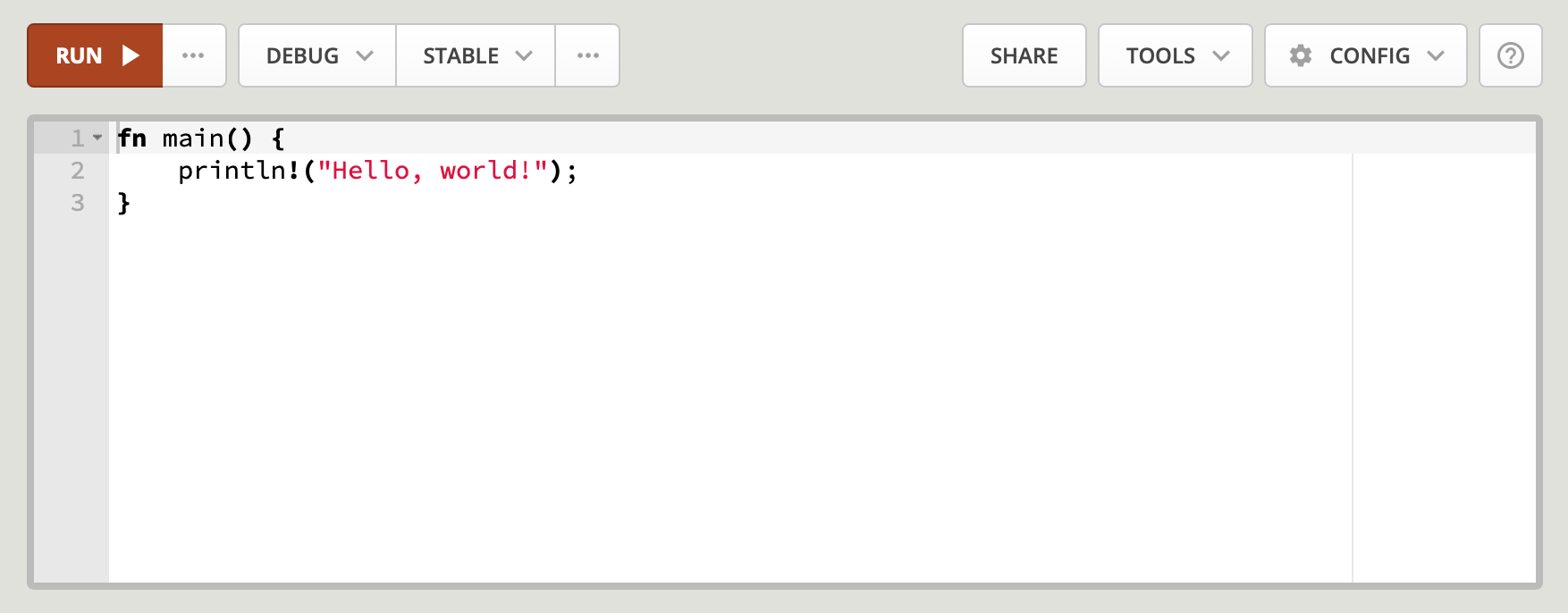Hello, World!
fn main() {
println!("Hello, world!");
}
fn means function. The main function is the beginning of every Rust program.println!() prints text to the console and its ! indicates that it’s a macro rather than a function.
💡 Rust files should have
.rsfile extension and if you’re using more than one word for the file name, follow the snake_case convention.
- Save the above code in
file.rs, but it can be any name with.rsextension. - Compile it with
rustc file.rs - Execute it with
./fileon Linux and Mac orfile.exeon Windows
Rust Playground
Rust Playground is a web interface for running Rust code.
👨🏫 Before going to the next…
- These are the other usages of the
println!()macro,
fn main() {
println!("{}, {}!", "Hello", "world"); // Hello, world!
println!("{0}, {1}!", "Hello", "world"); // Hello, world!
println!("{greeting}, {name}!", greeting = "Hello", name = "world"); // Hello, world!
let (greeting, name) = ("Hello", "world"); // 💡 Two Variable bindings declare & initialize in one line.
println!("{greeting}, {name}!"); // Hello, world!
println!("{:?}", [1, 2, 3]); // [1, 2, 3]
println!("{:#?}", [1, 2, 3]);
/*
[
1,
2,
3
]
*/
// 🔎 The format! macro is used to store the formatted string.
let x = format!("{}, {}!", "Hello", "world");
println!("{}", x); // Hello, world!
// 💡 Rust has a print!() macro as well
print!("Hello, world!"); // Without new line
println!(); // A new line
print!("Hello, world!\n"); // With new line
}
- Check the difference between macros and functions.
- For more
rustccommands, check therustc --helpcommand.
